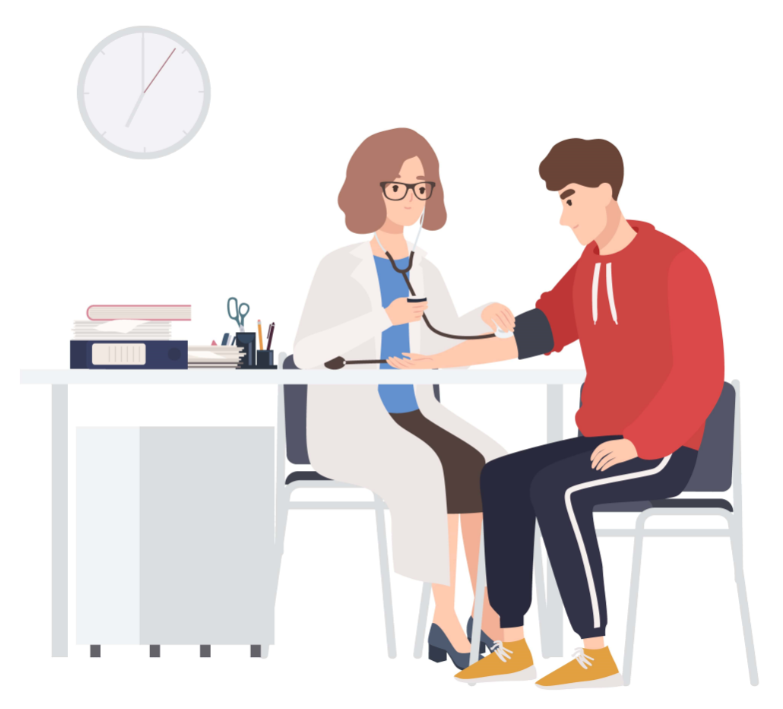Risk factors

About 90% of people that have diabetes have type 2. Normally it occurs in people over the age of 40 but there are some cases of younger people developing it. It generally develops slowly so you may not notice any symptoms of it. It’s really important to know your risk for developing type 2 so you can take action to prevent it from occurring.
Common risk factors are:

Being overweight
Living with overweight, particularly if you carry weight around your middle as it means that fat can build up around organs like your liver and pancreas.

Age
If you are white, your risk of type 2 diabetes increases when you reach age 40. If you are African-Caribbean, Black African, or South Asian, your risk of type 2 diabetes increases when you reach age 25

Family history
You are two to six times more likely to get type 2 diabetes if you have a parent, brother, sister or child with diabetes

Ethnicity
People of African-Caribbean, Black African and South Asian descent are two to four times more likely to be diagnosed with type 2 diabetes at some point in their lives.

High blood pressure
As resting blood pressure increases so does the risk of developing type two diabetes.
Below is a video from Diabetes UK with Rohit who discusses finding out his risk of developing type 2 diabetes and what action he took to prevent it:
Other factors
There are a number of other factors that can increase your risk of developing type 2 diabetes, these include:

Smoking
It’s well known that smoking is a major risk factor for many diseases such as cancer, heart disease and COPD. Smoking is also associated with a higher risk of developing type 2 and the subsequent complications of diabetes.

Sedentary lifestyle
If you spend long periods being inactive. For example, sitting at a desk working, sitting or lying on the sofa chatting to friends, surfing the web on one of your devices, travelling for long periods of time in the car, bus or other forms of public transport. These factors contribute to a sedentary lifestyle.
Sedentary lifestyles have a negative impact on our body’s ability to process the glucose that’s building up within it in a healthy manner and it is said to undo all of the positive benefits we gain from being physically active. Ideally, we want to be up and moving regularly throughout the day, the recommendation is every 30 minutes. By doing so this will allow us to meet the recommended physical activity guidelines of 150 minutes of moderate physical activity over the course of the week.
This helps us to improve our energy levels and maintain all of those other benefits gained from an active lifestyle. Overall this allows us to lower our blood glucose levels and reduce the risk of developing type 2 diabetes.

Gestational diabetes
If you have had gestational diabetes (diabetes during pregnancy) then you have an increased risk of developing type 2. It is important to have your blood glucose checked regularly post-pregnancy and look out for any of the symptoms of type 2.

Alcohol
There are several reasons why alcohol can be a risk factor for developing type 2 diabetes. Firstly, heavy drinking can reduce the body’s sensitivity to insulin. Secondly, very heavy drinking can lead to chronic pancreatitis, which results in diabetes developing as a result of damage to the insulin-producing cells.
Alcohol also contains a lot of calories which can increase your chance of gaining weight and in turn increase your risk of type 2.

Polycystic ovary syndrome (PCOS)
This is a condition that affects ovaries, the part of the female reproductive system that stores and releases eggs for fertilisation. In PCOS, the ovaries can become enlarged and contain multiple small fluid-filled sacs called follicles. People with this condition have a higher risk of developing type 2 due to insulin resistance and higher levels of insulin circulating in the bloodstream.
For further information on PCOS, have a look at the NHS website.

Mental health conditions
Long-term stress and anxiety, as well as experiencing other diagnosed mental health conditions can increase our risks of being diagnosed with type 2 diabetes, due to the impact on our blood pressure, physical activity levels, sleep patterns and overall wellbeing which can, at times impact on the way we use food or process it.
Schizophrenia, bipolar disorder and depression can also be risk factors for type 2 again due to how our behaviour can change due to experiencing their symptoms
Antipsychotic medication, such as clozapine or olanzapine, can also increase your risk of developing type 2 diabetes. Some of the medications that are used to treat these conditions can cause you to gain weight which is an established type 2 diabetes risk factor.
It’s important not to stop taking medications that are used to manage your condition, just think about what else you can do to help and manage these conditions which will have a positive impact on reducing the risk of developing type 2 diabetes and make you feel better. If you have any concerns then speak to your GP or healthcare team.



Leave a Reply
You must be logged in to post a comment.